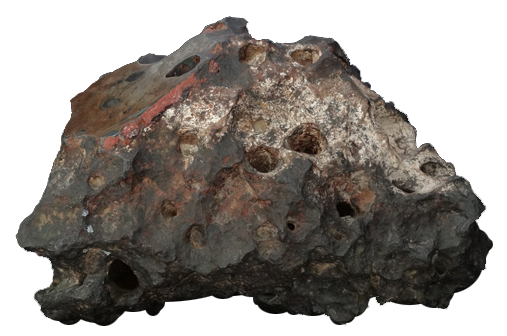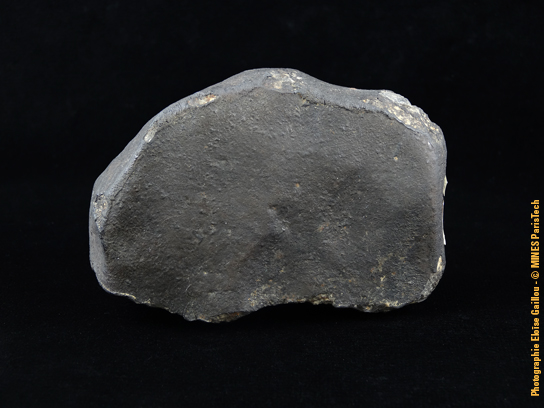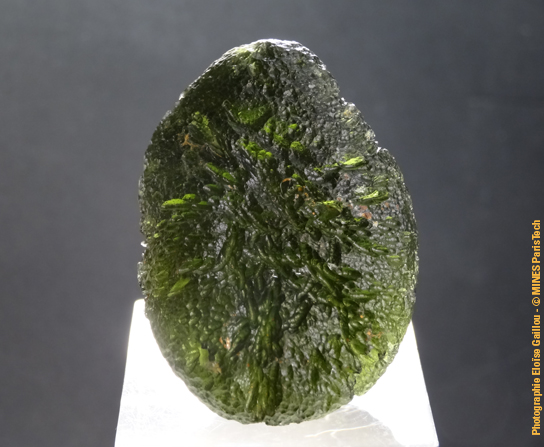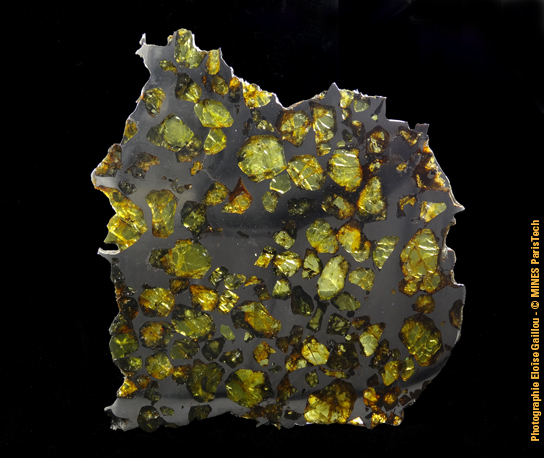







 View of Meteor Crater in Arizona.
View of Meteor Crater in Arizona.
From May 10 until August 27, 2016, the Mineralogy Museum MINES ParisTech offers to the public the temporary panel exhibit "IMPACT! - These collisions that reflect the history of our solar system" conducted as part of the Vigie-CIEL project. Additionally, the Mineralogy Museum shows off specimens from its historic collection of meteorites. Visitors can discover one of the biggest pieces of the Canyon Diablo meteorite (226.80 kg!), which formed the so-called “Meteor Crater” in Arizona about 50,000 years.
The purpose of this unprecedented exhibition at the Mineralogy Museum MINES ParisTech is to understand and identify impact craters. Volcanism and impactism are the major geological processes in the solar system.
The " IMPACT! " exhibit is presented using 14 panels with large visuals on which is printed a humorous title, a short explanatory intorduction, a more substantial paragraph, illustrations and captions that deepen the subject, and finally a children's area at the bottom of the panel, which even some lighthearted adults may find amusing .
The authors of these panels are Sylvain Bouley, a planetary scientist at the University Paris-Sud, one of the founders of FRIPON research program, Monica Rotaru, a mediator in Universcience and Vigie-CIEL and Marie Aubry, an illustrator and graphic artist who is the creator of the little character accompanying the visit.
In addition to the famous Canyon Diablo meteorite, the Mineralogy Museum presents several other extraordinary meteorites, such as the “L'Aigle” meteorite whose fall was observed in 1803 in France, and meteorites from the asteroid Vesta, Mars, and the Moon.

The impact is illustrated by terrestrial rocks, including impact breccias, and tektites (moldavite, Lybian glass ...), which are transformed during the meteorite's impact with Earth. Meteorites also exist on other planets and asteroids, proved by the existence of mesosiderites. Some samples are on loan from major meteorite hunters, such as Alain Carion and Luc Labenne.

The temporary exhibit, located in the spectacular setting of the Mineralogy Museum MINES ParisTech, will delight the little ones and the adults, and will please the uninitiated and the experts.

Any questions about the museum or the collection ? Contact us
Find all the information to come to the Mineralogy Museum here
Musée de Minéralogie
Mines Paris - PSL
60 boulevard Saint Michel
75006 Paris
OPENING HOURS FROM AUGUST 13th:
TUESDAY: 10am - 12pm and 1:30pm - 6pm.
WEDNESDAY, THURSDAY, FRIDAY: 1:30pm - 6pm
SATURDAY: 10am - 12:30pm and 2pm - 5pm
Closed on National Holidays, Sundays and Mondays
NEXT CLOSING DAYS:
Exceptionnally closed on Saturday August 17, 2024
Mines Paris - PSL will be closed during the Olympic Games. For this reason, the museum will also be closed from SATURDAY JULY 20 UNTIL MONDAY AUGUST 12, 2024.
Find all our temporary exhibits and special events here
